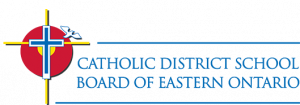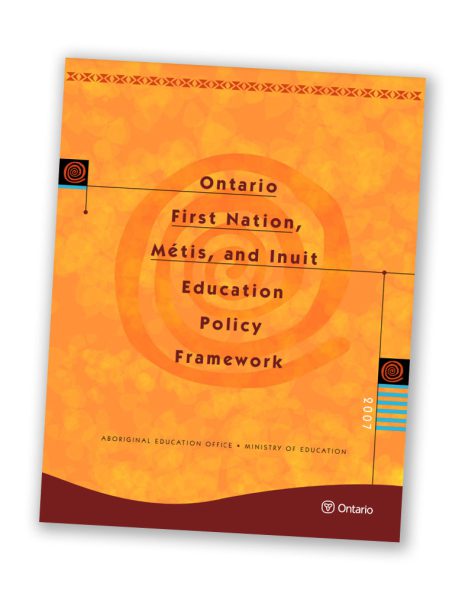Indigenous Education
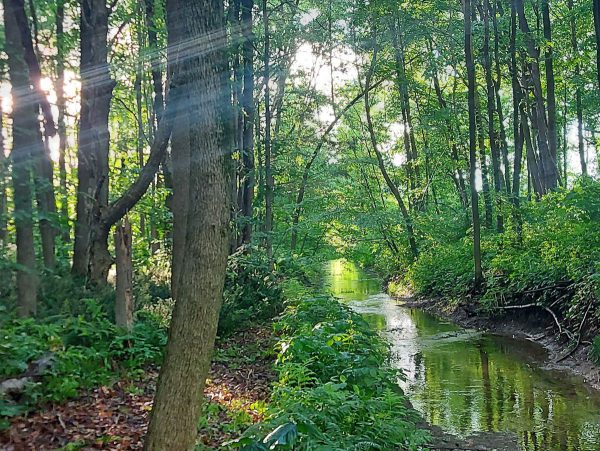
Land Acknowledgement
We acknowledge that the Catholic District School Board of Eastern Ontario gathers on the unceded, traditional Algonquin territory of the Anishinaabe people, as well as the traditional Mohawk territory of the Haudenosaunee people. We respect both the land and the people of this land, including all Indigenous people who have walked and continue to walk in this place.
Reconciliation with First Nations, Métis, and Inuit People
The CDSBEO collaborates with First Nations, Métis, and Inuit people in a process of co-creating new ways of being and knowing together. This includes actively consulting Indigenous peoples, valuing their input in actions and decision-making, and reviewing, and revising policies, practices, and procedures to better reflect Indigenous perspectives, experiences, and needs. We focus on embodying the teachings and reciprocity with Indigenous community partners.
Indigenous Education News
-
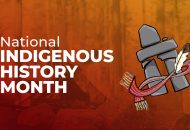
National Indigenous History Month 2024
CDSBEO schools celebrate National Indigenous History Month every June, by spotlighting and sharing the impactful work of Indigenous Community Partners who have and are currently enriching the learning experiences of…
-
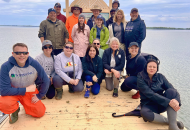
Regional Indigenous Education Leads’ Meeting at Thompson Island Cultural Camp
On May 14th, 2024, the Catholic District School Board of Eastern Ontario and Upper Canada District School Boards’ Indigenous Education Teams co-hosted a Regional Indigenous Education Leads’ meeting at Thompson…
-

National Day of Awareness for Missing and Murdered Indigenous Women, Girls, and Gender Diverse People
On Friday, May 3rd, the CDSBEO observed the National Day of Awareness for Missing and Murdered Indigenous Women, Girls, and Gender Diverse People, which fell on Sunday, May 5th. In…
Indigenous Education Councils
The IECs guide school boards and schools in building stronger relationships with communities, sharing information, identifying promising practices and enhancing collaborative work to support First Nation, Métis and Inuit student achievement and well-being.
Elders, Knowledge Keepers, Indigenous community members, educators, administrators, students and parents sit on the CDSBEO IEC. The council meets several times a year to discuss Indigenous Education initiatives happening throughout the CDSBEO.
Classroom Education
The CDSBEO is continuously working to support Indigenous education for all K-12 students. Below are just some of the learning opportunities happening across the Board:
Learning from Elders, Knowledge Keepers, and Indigenous community partners including;
First Nations, Métis, and Inuit perspectives, Wampum Belt Teachings, Inuit Games, Medicine Wheel Teachings, Basket Making, Beading, Traditional Cooking, Food Systems, Lacrosse, Medicine Pouch Teachings, Métis Nation Building, Storytelling, Inuit Survival Tools, Socials, and more
Supporting Ontario Curricula on;
Residential schools, treaties, the legacy of colonialism, and the rights and responsibilities we all have to each other as treaty people
Registering and exploring Indigenous studies high school courses;
Expressions of First Nations, Métis, and Inuit Cultures (Grade 9), First Nations, Métis, and Inuit in Canada (Grade 10), English: Understanding Contemporary First Nations, Métis, and Inuit Voices (Grade 11), World Views and Aspirations of First Nations, Métis, and Inuit Communities in Canada (Grade 11), Indigenous Ways of Knowing (Grade 11), and Contemporary Indigenous Issues and Perspectives in a Global Context (Grade 12)
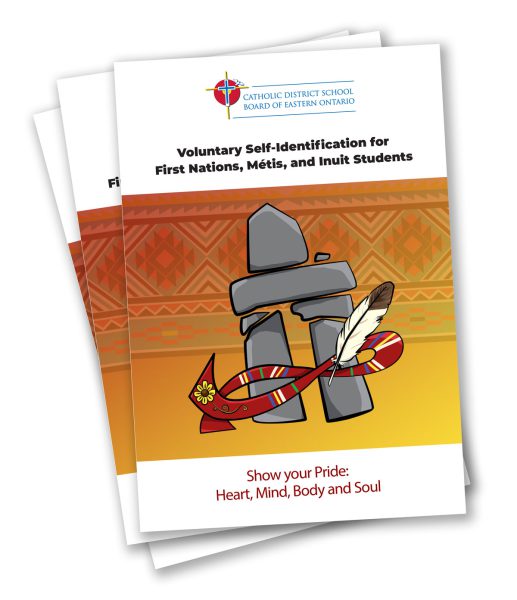
Self-Identification
Indigenous Self-identification is entirely voluntary, confidential, and proof of ancestry is not required. Self-identification provides First Nation, Métis, and Inuit students with access to a variety of educational opportunities to support their learning journey with the CDSBEO and to position them for success with the post-secondary pathway they choose. Please click the following link for more information:
Voluntary Self-IdentificationNote: All parents/guardians of Indigenous students, and students aged 18 of age or older, have the right to voluntarily and confidentially self-identify. Through self-identification the Board is able to collect relevant information which helps to provide programs and strategies supporting the needs of First Nation, Métis and Inuit learners. The information is being gathered in accordance with section 29(2) of the Municipal Freedom of Information and Protection of Privacy Act. If you have already completed this form for your child, it is not necessary to re-submit every year.
If you have any questions, please contact Stéphanie Nelson for more information at 343-774-2097 or stephanie.nelson@cdsbeo.on.ca.
First Nation, Métis and Inuit Education Policy Framework
The First Nation, Métis and Inuit Education Policy Framework was released in 2007 and outlined our approach to supporting First Nation, Métis and Inuit learners in Ontario. The framework identified two primary challenges to be addressed by 2016:
- to improve achievement among First Nation, Métis, and Inuit students
- to close the achievement gap between Indigenous and non-Indigenous students
For more information on Ministry documents that support our work please visit:
Ontario First Nation, Métis and Inuit Education policy framework (2007) | ontario.ca
Indigenous education in Ontario | ontario.ca
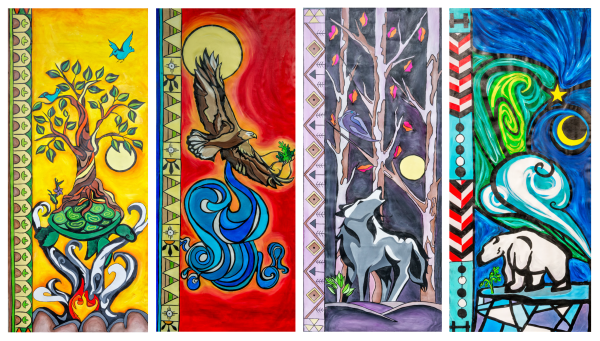
In 2016, the CDSBEO created four Indigenous banners based on the teachings of the Medicine Wheel. Students representing all CDSBEO secondary schools collaborated in creating the banners, under the guidance of Indigenous Elders and Teachers. Each of the four quadrants of the Medicine Wheel reflects many complex concepts including the four directions, East (yellow, spring, fire, rebirth, tree of peace), South (red, heart, connection, cedar), West (black, loyalty, family, ancestors, sage), and North (white, wisdom, guidance from Elders, sweetgrass). Every school received a copy of the banner for their region.
Meet the Team
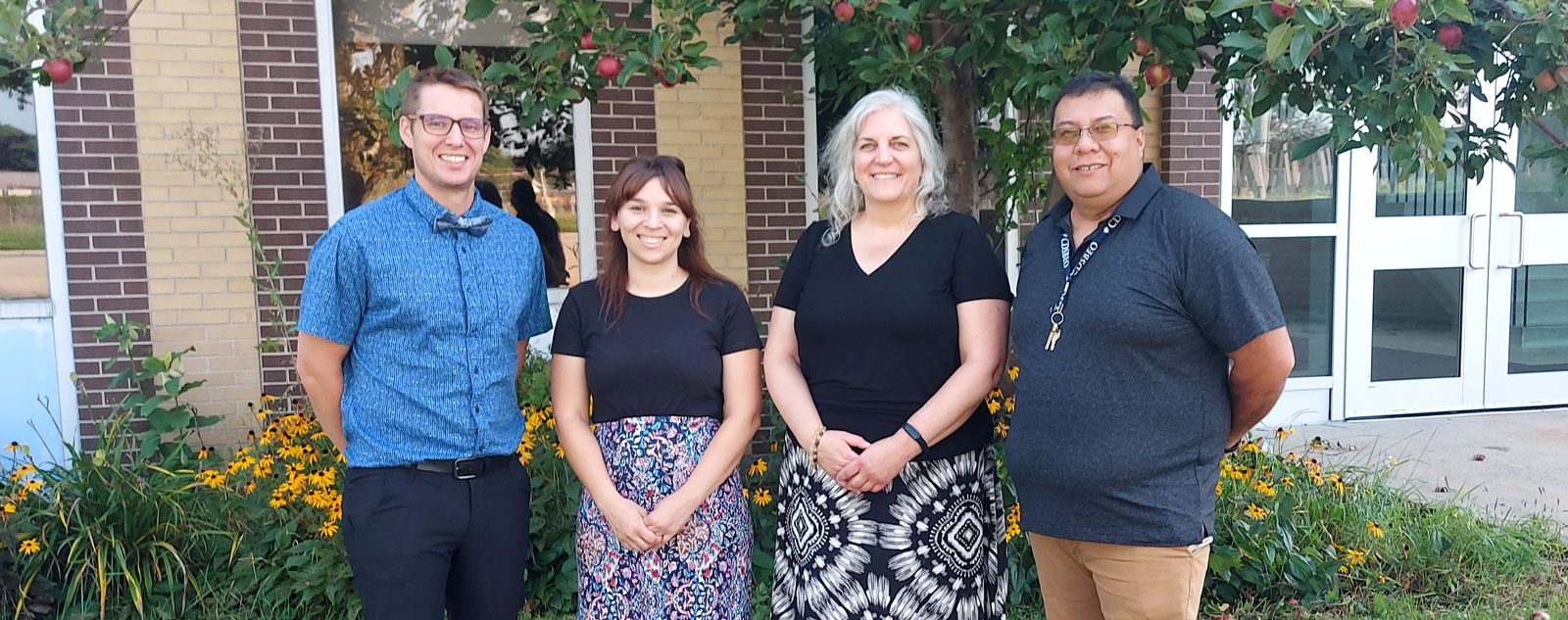
Melissa Mader-Tardif
Indigenous Education Elementary Consultant and Lead
613-933-1720 or 1-800-267-7136
Melissa.Mader-tardif@cdsbeo.on.ca
Colby Demerchant
Indigenous Education Secondary Consultant
613-209-9288
Colby.Demerchant@cdsbeo.on.ca
Stéphanie Nelson
Indigenous Grad Coach
343-774-2097
Stephanie.Nelson@cdsbeo.on.ca
Allen Smoke
Indigenous Student Success Mentor
613-933-1720
Allen.Smoke@cdsbeo.on.ca
Kaajuk Kablalik
Indigenous Grad Coach
343-774-2093
Kaajuk.Kablalik@cdsbeo.on.ca
